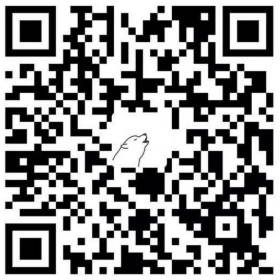英语语法-基本语法
五种句型
学习语法:分析句子=>理清句子成分=>理清句子关系
句子基本结构:主语部分+谓语部分(名词+动词)
五种句型:
主 谓 表 I am a Webaholic
主 谓 Internet dating hurts
主 谓 宾 I like chatting online
主 谓 间宾 主宾 Chatting on the internet brings me a lot of fun
主 谓 宾 宾补 We can call Internet addicts a Webaholic
关键在于谓语动词:动词构成了一个句子的骨架
1 主语+系动词+主语补足语(表语)
系动词(Linking Verb)
作用:无具体动作,仅起连接作用;
后面所接成分:说明主语特点性质特征
种类:be动词(am is are)
look sound smell taste feel seem appear become turn
表语:名词 or 形容词
2 主语+谓语(+状语)
不及物动词(Intransitive Verb)vi
特点:主语自身可以完成,不需要作用对象
习惯:带状语(修饰动作的成分)
3 主语+谓语+宾语
及物动词(Transitive Verb)vt
作用;:说明主语动作作用对象(宾语:主语动作承受对象)
4 主语+谓语+间宾+直宾
双宾动词(Dative Verb)
特点:后面成分有人(间接宾语[接受者])又有物(直接宾语[承受者])
5 主语+谓语+宾语+宾语补足语
宾补动词(Factitive Verb)
6 区分双宾语和复合宾语
在间接宾语后加上be动词,若能成句,则是补足语。
| 动词种类 | 句型 |
|---|---|
| Linking verb | 主+系+表 |
| Intransitive Verb | 主+谓 |
| Transitive Verb | 主+谓+宾 |
| Transitive Verb with direct object and indirect object | 主+谓+间宾+直宾 |
| Transitive Verb with direct object and object complement | 主+谓+宾+宾补 |
动词分类
1 实义动词(Notional Verb)
特点:
词义:完整
作用:能独立充当谓语
分类:助动词和情态动词以外的动词
2 助动词(Auxiliary Verb)
特点:
词义:不完整
作用:无法独立充当谓语
必须和实义动词连用,构成各种时态、语态、语气、否定、疑问
分类:
Be: am, is, are, was, were, been, being
Do: does, did
Have: has, had, having
| 助动词 | 变化形式 | 功能 | 例句 |
|---|---|---|---|
| Be | am, is, are, was, were, been, being | 帮助构成进行时态 | I am studying grammar.He is playing football. |
| 帮助构成被动语态 | |||
| I was cheated. | |||
| Do | Does, did | 帮助实义动词构成否定 | I do not like English. |
| 帮助实义动词构成疑问 | Do you like English? | ||
| Have | Has, had, having | 帮助构成完成时态 | I have studied English for 3 years |
be do have可作实义动词又可作助动词
| 例句 | 词义 | 词性及作用 | |
|---|---|---|---|
| be | I am a student | “是” | 系动词, 作谓语 |
| I am studying grammar | 无词义 | 助动词, 构成进行时 | |
| have | I have two brothers | “有” | 实义动词, 作谓语 |
| I have studied English for 3 years | 无词义 | 助动词, 构成完成时 | |
| do | I often do my homework at home | “做” | 实义动词, 作谓语 |
| I do not like English | 无词义 | 助动词, 构成否定 |
3 情态动词(Modal Verb)
特点:
词义:有词义,表示可能、建议、愿望、必要、允许、能力、怀疑、表示说话者对某种行为或状态的看法或态度
作用:无法独立充当谓语,必须和实义动词一起构成复合谓语
常见: can/could may/might must shall/should will/would have to ought to used to need/dare
句子的变化
1 陈述句否定
谓语动词含有助动词或情态动词
变形:助动词或情态动词后 + not
例:He is a teacher. He is not a teacher.
I can swim. I cannot swim.
He will come to the party he will not come to the party
谓语动词是实义动词
变形:借助助动词do not来构成,第三人称用does + not + 动词原形,过去式did + not
例:I like English. I do not like English.
He likes English.. He does not like English.
There are some dogs. There aren’t any dogs.
否定的缩写
| I am | Am not | Null |
|---|---|---|
| We/You/They are | Are not | Aren’t |
| She/He/It is | Is not | Isn’t |
| I/He/She/It was | Was not | Wasn’t |
| We/You/They were | Were not | Weren’t |
| I/You/We/They do | Do not | Don’t |
| He/She/It does | Does not | Doesn’t |
| Did | Did not | Didn’t |
| I/You/We/They have | Have not | Haven’t |
| He/She/It has | Has not | Hasn’ |
| Had | Had not | Hadn’t |
| 情态动词 | ||
| Will | Will not | Won’t |
| Would | Would not | Wouldn’t |
| Shall | Shall not | Shan’t |
| Should | Should not | Shouldn’t |
| Can | Cannot | Can’t |
| Could | Could not | Couldn’t |
| May | May not | Null |
| Might | Might not | Mightn’t |
| Must | Must not | Mustn’t |
其他词变化:and->or already->yet both->either some->any
祈使句: 祈使句前+don’t Don’t open the door.
不定式: 不定式前+not She asks the boy not to play in the street.
2 一般疑问句
谓语动词含有助动词或情态动词
变形:助动词 or 情态动词移至句首
例:He is a teacher. Is he a teacher? Yes, he is/No, he isn’t
谓语动词是实义动词
变形:加do does did于句首,实义动词变原形
例:He likes English. Does he like English? Yes, he does/No, he doesn’t.
I like English. Do you like English? Yes, I do/No, I don’t.
3 特殊疑问句
不接名词连用的疑问句
对人提问:who
He can sing in English. Who can sing in English.
I saw him at the party last night. Who did you see at the party last night?
对事或物:what
I like English. What do you like?
I am studying English grammar. What are you doing?
I am studying English grammar. What are you studying?
I’d like to go swimming tomorrow. What would you like to do tomorrow?
对时间提问:when
I was born in 1980. When were you born?
对地点提问:where
He lives in Beijing. Where does he live?
对方式提问:how
He goes to school by bus. How does he go to school?
对原因提问:why
I often study at the library because it’s quiet. Why do you often study at the library?
接名词连用的疑问词
Which:
Could you lend me your pen?
Sure. I have two pens. This pen has black ink. That pen has red ink.
Which pen/Which one/Which do you want?
That red one. Thanks.
Which也可不接名词。这时which用作代词。
Whose:
必须接名词
This is his book. Whose book is this?
I borrowed Jack’s car last night. Whose car did you borrow last night?
How用法详解
单独使用:对动作方式的提问
How do you go to work?
I drive/ By car/I take a taxi/I take a bus/By bus.
How did he break his leg?
He fell off the ladder.
和形容词 or 副词连用
How old are you?
How tall is he?
How big is your new house?
How far is it from your home to school?
How well does he speak English?
How quickly can you get here?
对频率提问:how often/how many times?
I write to my parents once a month. How often do you write to your parents?
I go shopping twice a week. How often do you go shopping?/How many times a week do you go shopping?
其他频率短语
Every
Once a —> day/week/month/year
Twice a
Three times
一般时态和现在时态
The present simple tense
is used to express a general truth or fact, or an action that occurs regularly or habitually. Generally, the present simple tense verb conveys a sense of permanence.
Truth or fact
The sun rises in the east and sets in the west.
The earth moves around the sun.
An action that occurs regularly or habitually
I often spend two hours reading English in the morning.
Classes begin at nine in the morning
1.事实
The world is round.
2.经常性,习惯性动作或状态
He doesn’t work hard.
(1)常连用频率副词(助动词后,实义动词前)
always frequently usually sometimes generally occasionally often
never seldom rarely
3.以there或here开头句子中,表正在发生的短暂动作
Here comes your wife= your wife is coming.
There goes our bus; we’ll have to wait for the next one.
4.条件状语(if unless),时间状语(when as soon as before after )从句中,表示将来动作
Please let me know when he comes back.
What are you going to do when you leave school?
I’ll be glad if she comes over to visit me.
The past simple tense
is used to express a completed action which took place eat a specified time in the past.
The specified time is either stated or implied.
A completed action
I saw him in the library yesterday morning.
I began to learn English ten years ago.
A past action that occurred regularly or habitually
I slept for eight hours last night.
She lived in our town for three years,but now she is living in Beijing.
1.过去动作或状态
He was late for school this morning.
I bought this computer three years ago.
2.过去一段时间一直持续或反复发生的动作
I lived in the country for ten years.
He used to do morning exercises.
He took a walk after supper when he was alive.
The future simple tense
is used to express an action that will occur at some time in the future.
Will or Be Going To can be used to express sort of certainty.
According to the weather report, it will be windy tomorrow.说话人认为将要发生
According to the weather report, it is going to be windy tomorrow.根据明显迹象判断
Be Going To is used to express a definite plan.
I have bought a computer and I’m going to learn the computer science.
Will is used to express a willingness.
The telephone is ringing; I will answer it.
Will(说话时做出的决定)
Be Going To(对话前做出的决定)
进行时态
时态构成
助动词+进行分词 be+doing
意义
该时刻(具体时间,另一个具体活动背景下),活动正在进行
现在进行时
1.说话此刻正在进行
What program are you watching?
He is not available now. He is talking on another phone.
2.现阶段正在持续的动作
what are you doing these days?
I am learning the usage of verb tenses.
3.最近的将来已定的安排(计划 安排做)
What are you doing on Saturday night?
I’m doing some shopping with Jane. I am taking a makeup test tomorrow.
4.与always forever continually constantly等连用,表示抱怨,厌烦
Jack is always borrowing money and forgetting to pay you back.
He’s continually asking me for money.
过去进行时
1.过去特定时刻发生的事情
I was discussing my thesis with my director at this time last night.
What were you doing at 10 o’clock last night? I was having dinner with my friends
2.过去进行时(背景)+一般过去时(背景下发生的短暂动作或状态)
The phone rang while I was having my bath, as usual.
I was watching TV when the phone rang.
将来进行时(will be doing)
1.将来某特定时刻活动正在进行
I’ll be lying on a beach in Sanya this time tomorrow.
Don’t telephone after eight tomorrow. I’ll be having a meeting.
名词
名词短语(名词与它前面的修饰语)
These red roses are for you.
I have three close friends.
I really need a new computer.
1.功能
主语 宾语(介词不能单独使用,后面所接宾语) 表语
2.修饰语
限定词: 泛指,特指,定量,不定量(these three a the my that),冠 词(a an the)
形容词: red close new best small
3.位置
限定词在形容词前: 限定词+形容词+名词: three red roses.
名词可数与不可数
名词分类
专有名词 Paris, the United States, Bill Gates
普通名词
可数名词
个体名词 student tree hospital house piano
集体名词 team committee police group family
不可数名词
物质名词 paper water cotton air
抽象名词 birth happiness evolution technology hope
简单名词 story student teacher
复合名词 girlfriend roommate mother-in-law
相对性
paper
I need some paper to write a letter(纸 不可数)
I have a term paper to write on weekends(论文 可数)
I bought a paper(报纸 可数)
room(空间 不可数; 房间 可数)
可数名词与不可数名词比较
可数名词: 前面可以+ a or an or 数词(two)
不可数名词: 不可+
变形及读音
1.末尾+s(清辅音s 浊辅音z)
2.-s -x -ch -sh结尾+es读[iz] 若ch发音为[k]时+s (stomach/stomachs)
3.辅音字母+y: 变y->ies 读[iz]; 元音字母+y: 直接+s 读[z]
4.特殊变化
1)o结尾 读[z]
potato/potatoes tomato/tomatoes hero/heroes piano/pianos photo/photos radio/radios
2)f或fe结尾 f, fe->ves 读[s] or 直接+读[s]
half/halves knife/knives leaf/leaves life/lives
belief/beliefs chief/chiefs cliff/cliffs proof/proofs roof/roofs
3)单复数同形
aircraft deer giraffe sheep
4)man/woman 构成的复合名词(都变)
man teacher/men teachers woman pilot/women pilots
5)名词+介词或介词短语构成的复合名词(名词变)
passer-by/passers-by looker-on/lookers-on
不可数名词
1.物质名词不可数
beer blood coffee cream gasoline honey juice milk oil tea water wine
bread butter cheese ice ice-cream meat beef chicken fish chalk copper cotton glass gold iron
air fog oxygen smoke
2.抽象名词
advice anger beauty confidence fun happiness health honesty informaation love luch peace
3.总称名词不可数
furniture fruit jewelry luggage equipment poetry machinery
不可数名词的度量
1.piece
advice bread baggage chalk equipment furniture information jewelry luggage music news
2.bottle cup drop glass
beer blood coffee milk tea water wine
3.else
a loaf of bread a tube of toothpaste a pack of cigarette a slice of meat
名词所有格
1.单数名词后+’s
2.复数名词后+s’ ;复数型名词后+’s
her friends’ money
the children’s Day
3.复合名词后+’s
my father-in-law’ s company
everyone else’ s viewpoints
Henry the Eighth’ s wives
the President of America’ s secretary
4.and连接的并列名词: 共有情况: 最后+’s ; 各自所有情况: 每个名词后+’s
5.重量 度量 价值
two pounds’ weight a ton’s weight a ton’ s steel two dollars’ worth of sugar
6.省略
1)前文以出现,避免重复
This bike is mine, not Michael’s
2)表示店铺或教堂(要加the)
at the baker’s at the butcher’s at the chemist’s at the doctor’s
3)人名后的所有格省去名词表示住宅
go to my sister’s I called at my uncle’s yesterday.
7.of所有格的其他关系
1)主谓关系
the visitor’s departure the teacher’s request the growth of agriculture
2)动宾关系
the children’s education the boy’s punishment the discussion of the plan
英语学习-语法系列github仓库,欢迎收藏star
参考文章:
参考链接
1.英语语法-句子类型
2.英语语法-状语从句
3.英语语法-形容词adjective
4.英语语法-限定词2
5.英语语法-限定词1
6.英语语法-完成时
7.英语语法-完成进行时
8.英语语法-人称代词






